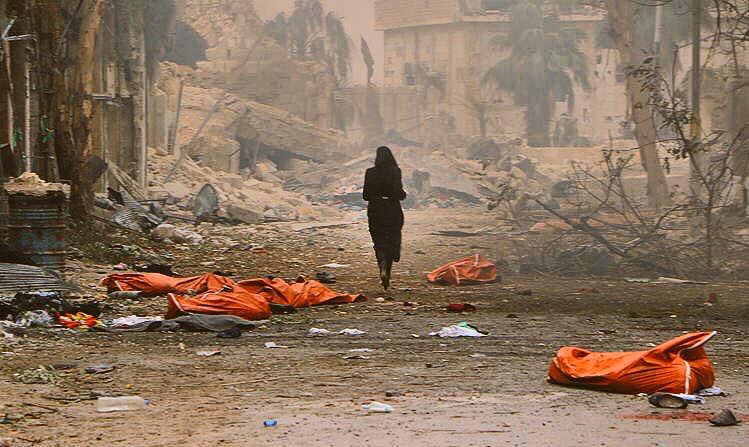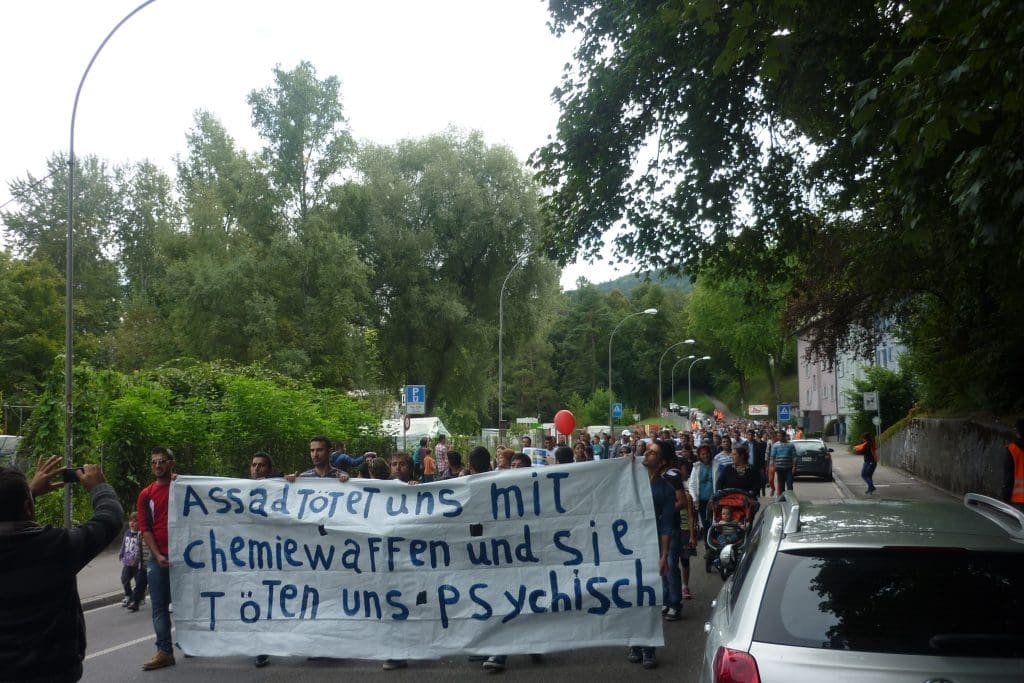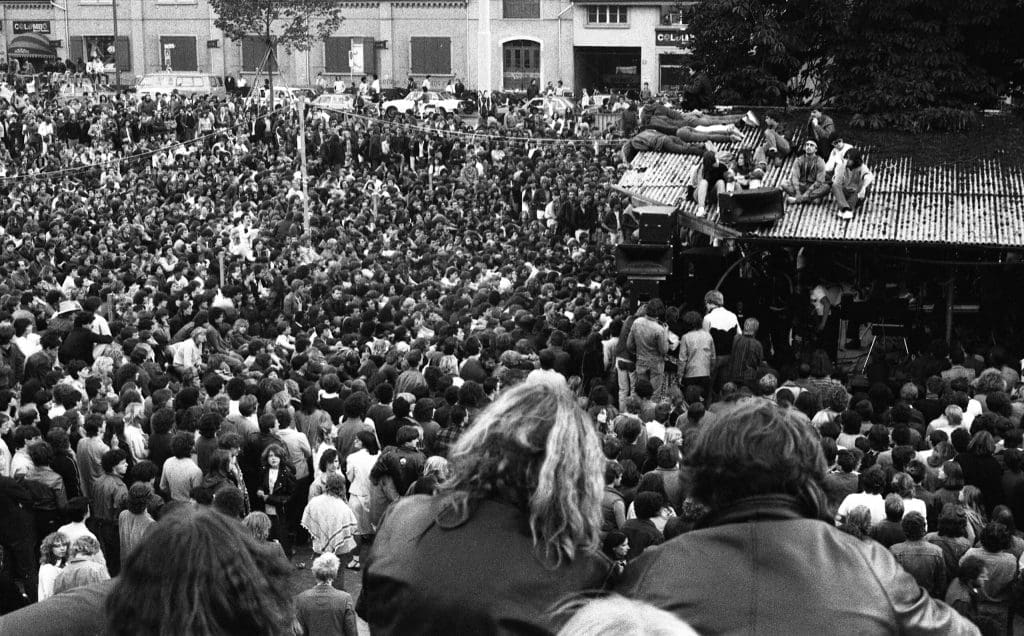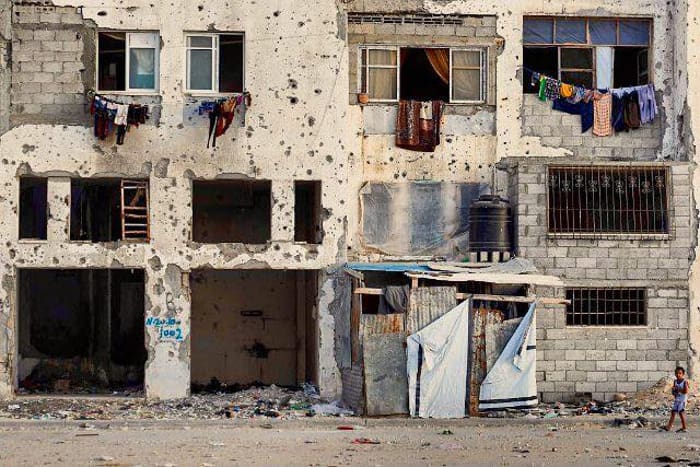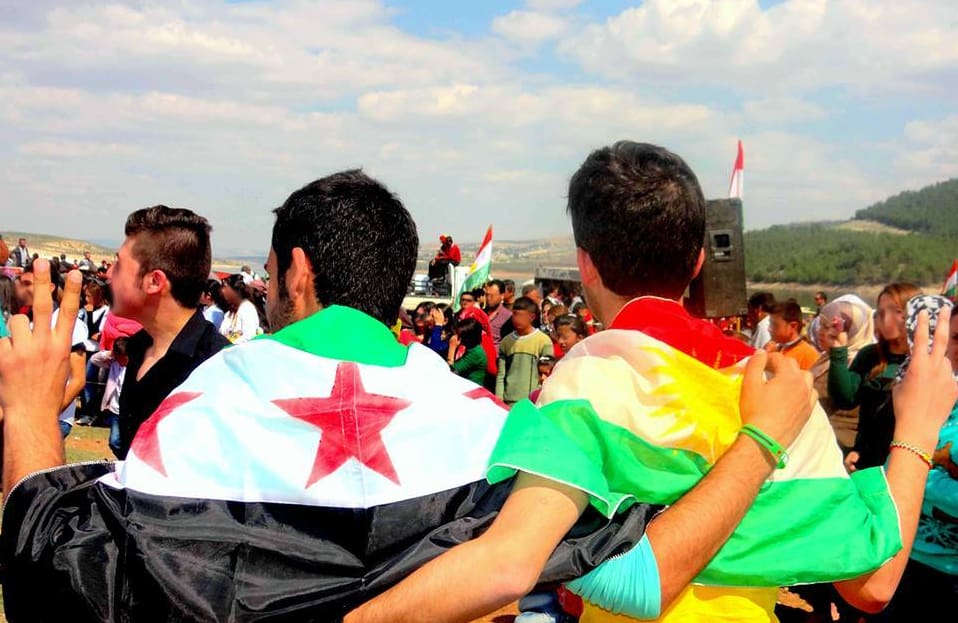Under Aleppo’s rubble, there is something for everyone to mourn.
by Taha Bali
13 December 2016 (original post)
For those who believe in peaceful and civil resistance tactics as a means for change:
Aleppo was the city that produced the most significant and consequential student movement in the Syrian Revolution, and, in later days, it was the liberated areas in Aleppo that saw some of the most active anti-ISIS demonstrations and an effective, albeit contentious and imperfect, oversight from civil society and local governance bodies over military factions. None of this has ever been or will ever be allowed under the totalitarian Assad.
For Arabs, Muslims, and internationalists anywhere in the world who hold dear the virtue of solidarity:
Modern history hardly has a more dire example of our collective empathy going bankrupt. The contrast to the anti-Iraq war protests in 2002-2003 suffices to appreciate how hypocritical the Global South and Global Left have been vis-à-vis the Syrian tragedy. What mattered and matters, it turns out, is the criminal, and never the victim.
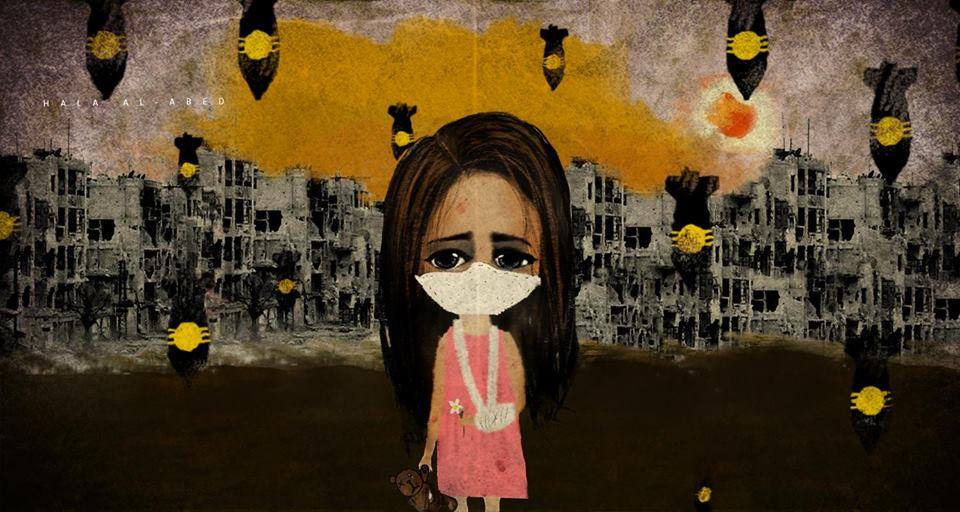
For millennials, and others who adhere to the delusion that modern-era communication technology has brought us closer to safeguarding against mass atrocities going unanswered:
The events in Aleppo unfolded before our eyes, almost literally. The bombing was broadcast on Facebook Live and the victims’ blood pervaded YouTube. If anything, modern technology enabled Russian misinformation to spread wider and deeper. It enabled trivial affairs to overwhelm the audience, distract the media, and even elect a buffoon for president of the most powerful country in the world. Indeed, it was Donald Trump’s tweeting and retweeting that occupied the “news” over the last few days, overshadowing anything else of real substance.
For the “anti-imperialists” and erstwhile upholders of international law and norms:
Behold, as the mostly-foreign Assadist troops (Lebanese, Iraqi, Iranian, Afghan, Palestinian, Russian, and Pakistani), with the help of mostly-foreign military advisers (Iranian and Russian) and a mostly foreign air force (Russian), occupy East Aleppo and crush the local civil and military resistance, almost entirely made up of Syrians. Behold as WMDs continue to be used on a regular basis against the helpless locals as ‘Syria’ is turned into one more card Putin holds to pressure other international “stakeholders.”
For anyone who came of age watching news from the Intifada and Gaza wars and identifies as a supporter of the Palestinian Cause:
In Aleppo and Syria at large lies a yet more spectacular example of collective punishment via asymmetric warfare, irreversible displacement of the population, loose politicization of the terrorism label, and protracted civilian sieges, all being rewarded with a series of UNSC vetoes against an international consensus.

For those whose primary reason to pay attention to the Middle East is concern with ISIS and extremism as a whole:
Rest assured, “extremists” have emerged victorious alongside Assad and Putin. Setting aside the immediate materialistic factors strengthening extremism—poverty, the uprooting of the population, the illegitimacy of central government, expected sectarian oppression—the defeat of a pluralistic revolution striving for dignity for all, and the perceived international convergence on exacting said defeat, will reverberate for generations to come and will undoubtedly be the ultimate recruiting tool for ISIS and its spawn. It is nihilism, after all, that feeds extremism like no other.
For sympathizers with the refugees, including those concerned about the future of the EU and its ability to withstand the refugee crisis:
Assad’s (and Iran’s) Final Solution has been to irreversibly depopulate the regions that revolted against his rule. The “Syrian Army” is stretched thin and simply lacks the manpower to hold urban territory at prewar population levels. Expect the refugee problem only to get bigger—and, for reference and to conceptualize how this will unfold over the years, keep in mind there are fifteen times more Syrians displaced internally and externally at “time zero” than there were Palestinians in the Nakba.
And, last but not least, for those of us who dared dream of seeing a noble revolution come to fruition:
Aleppo will be a bleak reminder of how costly and at times seemingly unattainable freedom and justice can be. We mourn our memories, our comrades, our loved ones. We mourn our naiveté, our ignorance, our ideologies. But, make no mistake, we do not mourn our debt to the fallen, our determination to see justice through, or our hope for a better Syria.
This story has not ended.

This text was reproduced with the permission of the author.
All images via Dawlaty.org

